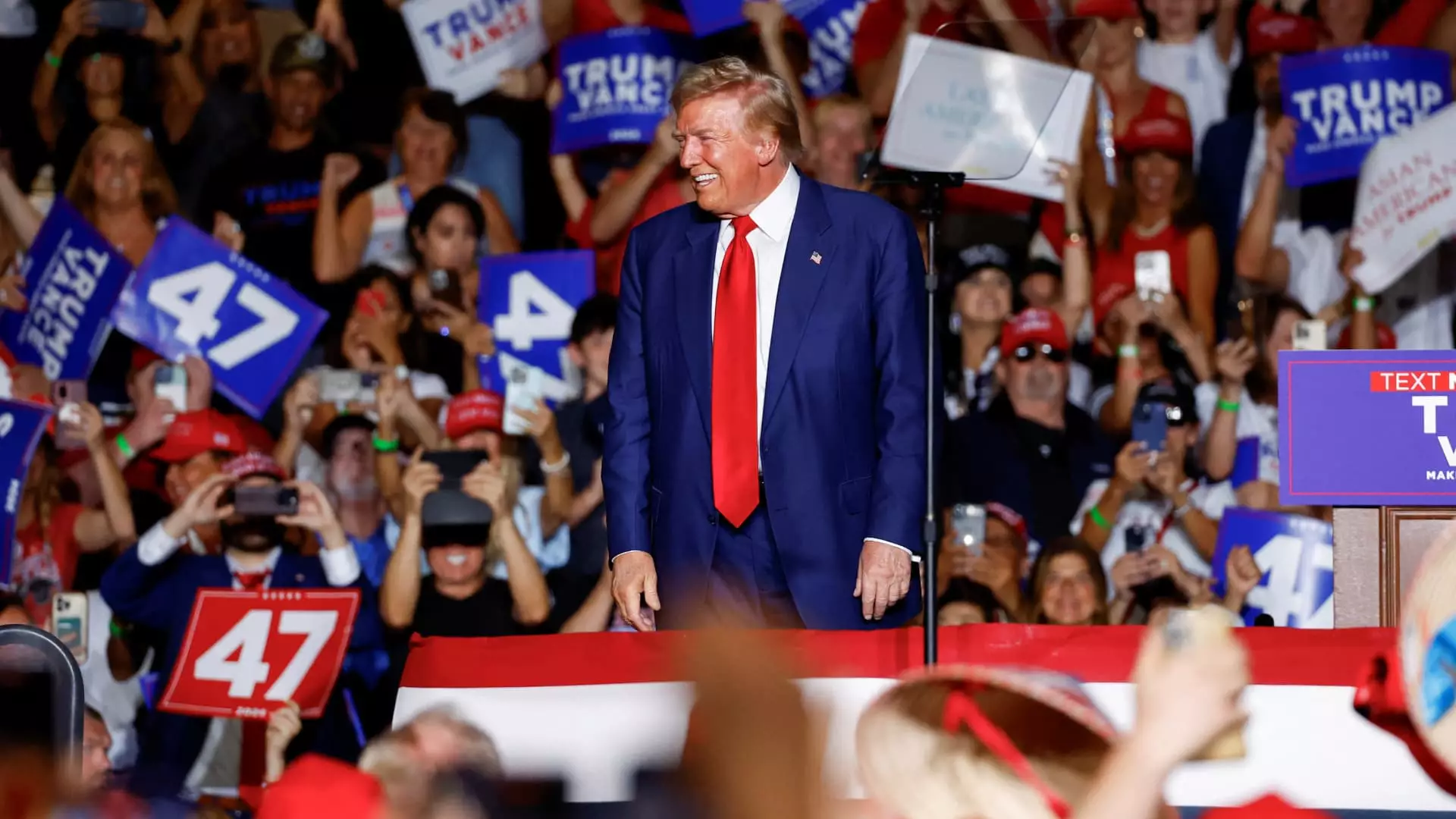As Election Day unfolded, shares of Trump Media & Technology witnessed notable fluctuations, driven by traders’ anticipations surrounding former President Donald Trump’s potential return to the White House. The stock, traded under the ticker DJT—an acronym embodying Trump’s initials—has increasingly become a focal point for voters and investors alike, fundamentally seen as a barometer for Trump’s electoral viability and the prospects of his affiliated ventures. With significant attention from Wall Street analysts, speculators reacted strongly, evidenced by a premarket trading surge of approximately 8.2%.
Such stock movement underscores a growing trend where political events are closely intertwined with market performance. This pattern was particularly influenced by broader sentiments toward Trump’s candidacy and the fierce competition posed by Vice President Kamala Harris, whose increasing popularity raised eyebrows just ahead of the election. The market’s ebbs and flows reflected an essential psychological dimension: investor enthusiasm juxtaposed with caution as opinions polarized in the electorate.
Throughout the year, shares of Trump Media have seen meteoric rises, nearly doubling their value. However, recent trends have sparked discussions about the sustainability of such growth. Following promising upticks, the stock has also experienced alarming dips—including a sharp 33% decline over the past week alone—a roller coaster that has affected many retail investors. The dialogue surrounding DJT has echoed sentiments reminiscent of past trading frenzies, such as the chaotic capital movements observed in the GameStop saga of 2021.
Market analysts, like Jay Woods from Freedom Capital Markets, have not shied away from characterizing the current trading behavior as speculative, drawing comparisons to “GameStop on steroids.” Such sentiments reveal an unsettling truth about the nature of DJT’s stock performance; while short-term traders can find profit opportunities, the long-term viability and grounding of the associated metrics remain questionable. This volatility raises significant concerns for stakeholders assessing legitimate investment strategies, necessitating a discerning eye on the broader implications of investing in politically charged assets.
The role of retail traders and online communities cannot be overstated in the current market climate surrounding Trump Media. Remarkably, the stock has emerged as a trending topic on platforms like Reddit’s WallStreetBets, echoing the community’s enthusiasm for disruptive and high-risk trading opportunities. Fueled by social media chatter, DJT has garnered inflows that are not only reflective of traditional investor sentiment but also encapsulate the fervor of newer, digitally-driven trading cultures.
This phenomenon has created a unique blend of pop culture and market speculation, highlighting the interplay between social media influence and stock performance. As reports surfaced regarding voter preferences fluctuating between Trump and Harris—with both candidates capturing 49% of support in recent polls—it became clear that the narrative surrounding DJT isn’t purely financial but also deeply rooted in political engagement.
The fate of Trump Media & Technology’s shares amid the ever-changing political landscape creates an intriguing yet turbulent tableau for investors. As Election Day concludes and results unfold, stakeholders will need to navigate not just the upcoming election outcomes but also the inherent volatility that accompanies politically charged investments. The stock’s performance points to broader themes of sentiment, speculation, and integrity within the intersection of finance and politics, leaving an air of uncertainty but also significant opportunity for those willing to engage in the conversation.

